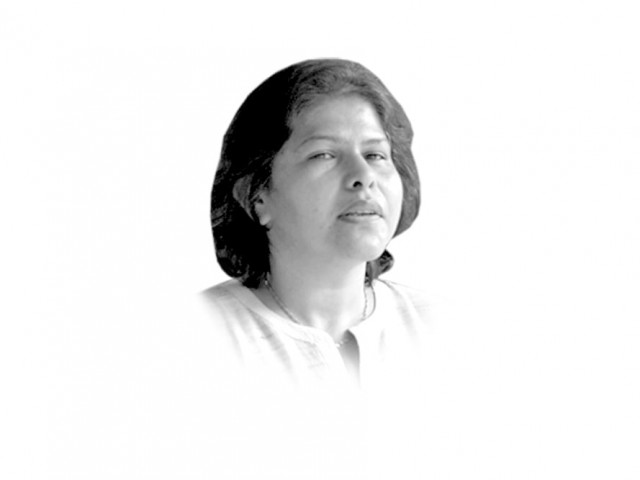The future of the Pakistan Peoples Party
In its bid to survive the establishment’s onslaught the party has become very centralised over the past few decades.

The writer is an independent social scientist and author of Military Inc.
Naturally, one was tempted to compare Rahul Gandhi’s debut speech with Bilawal Bhutto’s, which echoed a traditional and exhausted leadership style. Some Indian friends were quick to remind me of the difference in age between the two — while Bilawal is in his 20s Gandhi is in his mid-40s — suggesting that the former may improve with time.
An Indian friend was of the view that it was possible that India’s political trajectory may not change in 2014 and would wait another four to five years before transformation took place. Such an assessment was based on an assumption that the restless and argumentative young Indian might still be too lazy to come out and vote in the next elections. Similar are the concerns in Pakistan and so, when people say that millions support new parties or leaders, one is not sure what kind of victory it will translate into.
Whether new parties will succeed in the coming elections or the one after is not the real issue. The key factor is that both states are experiencing a demographic shift which means increase in the number of young people who may not be satisfied with the traditional method of politics or be willing to remain part of traditional patronage structures. If old parties have to survive then they have to play a different music for a more restless audience.
The recent opinion polls by US-funded think tank IRI (International Republican Institute) in Pakistan showed an increase in PML-N’s popularity even in Sindh where the PPP is believed to be the only or the key choice of the general public. Although the opinion polls indicate a dramatic reduction in the PPP’s popularity, Bhutto’s party still has some future in Sindh. This fact alone shouldn’t result in complacency because the overall situation for the party is not very exciting. Since its inception at the end of the 1960s when it dominated Punjab, it has been reduced mainly to rural Punjab and Sindh. Besides losing its urban base, the party has also begun to behave like a network, especially in the two provinces, Punjab and Khyber-Pakhtunkhwa, where party politics has practically been outsourced to political warlords like Manzoor Wattoo in Punjab or Anwar Saifullah in K-P. Over the past three to four decades the PPP has even been limited to pockets in urban Sindh.
Here, I am not analysing how this descent came about but just drawing a picture of the challenges faced by a party usually viewed as the only true national party to have emerged after 1947. It may or may not get swept out in the coming elections. In fact, it will still be around in the 2013 elections. However, this conclusion would not suffice for the party leadership that will find it difficult to attract a new breed of jiyalas who would be committed to an ideology. The jiyalas of Zulfikar Ali Bhutto days were men and women who were attracted to the party due to its promise of better distribution of resources and egalitarian politics. The older generation of party faithful remains and is still hooked on to what the PPP offered ideologically despite that its leadership turned towards becoming centrist or even right of centre. This generation of jiyalas is not multiplying. Of course, there are others including the more educated and urban jiyalas some of whom believe in the party’s traditional ideology but there is an increasing number that is there to make some political and economic gains. This means that they are not necessarily inclined to make the party’s top leadership think of the numerous challenges that it faces, the greatest being becoming a party of the past rather than the future.
In its bid to survive the establishment’s onslaught the party has become very centralised over the past few decades. This does not bode too well as a survival tactic since it requires not one single young man at the top but several of them who can engage with a restless, ambitious and apolitical youth that demands better governance and have little reverence for old politicians or their networks. For a political party that has weakened ideologically faces massive opposition from the establishment and is deficient in leadership in terms of quantity, it would certainly take more than just cash subsidies for the poor.
Bilawal is certainly youthful and a good learner. But more than presentation, he and his minders must focus on the content which ought to reflect sensitivity towards ordinary folk whose everyday life gets severely affected by commodity prices and lack of resources. It is easy for these people to get tempted towards other institutions if the ones that are supposed to deliver do not do so. As is obvious from the politics of rural Sindh, the ordinary folk are more willing to follow extremist and right-wing forces because they may be the only ones that seem to have the gun-power to challenge the traditional power structures. These extremist forces that are the neo-feudal of the area have even attracted partners from other political parties including the PPP. This undermines young Bilawal’s idea of fighting extremism and terrorism.
A real debut speech requires a vision of governance and the ability to move away from the past to the future.
Published in The Express Tribune, January 31st, 2013.














COMMENTS
Comments are moderated and generally will be posted if they are on-topic and not abusive.
For more information, please see our Comments FAQ